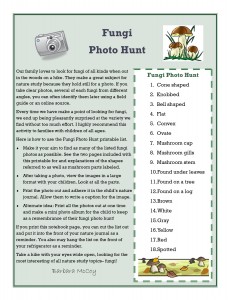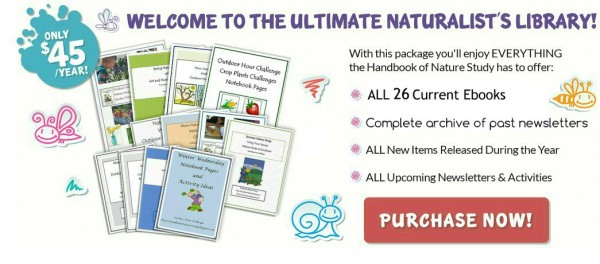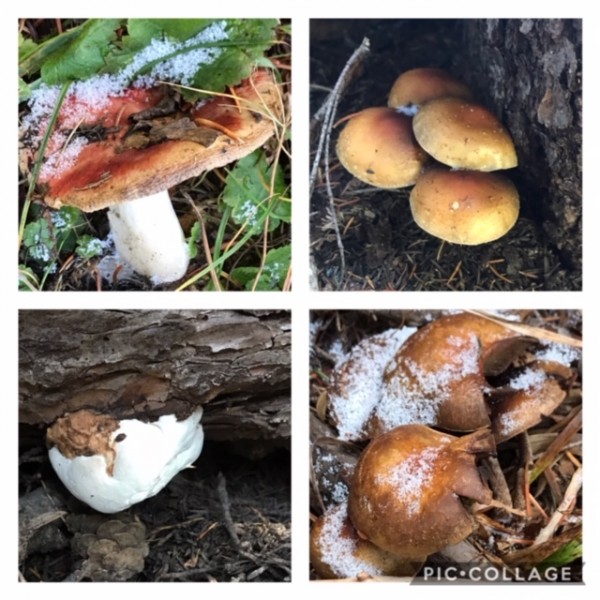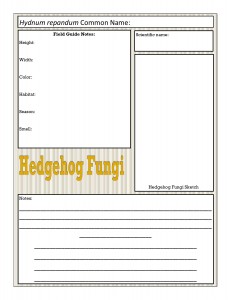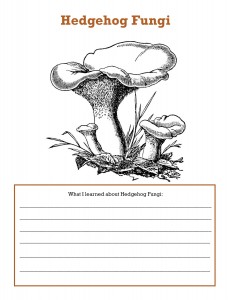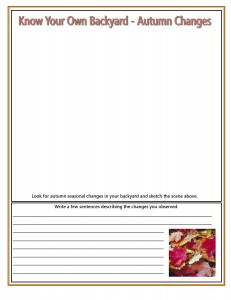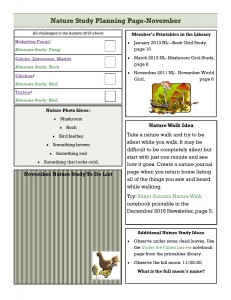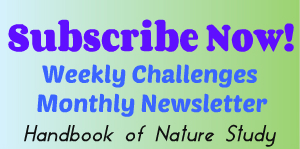Our family loves going on a good mushroom hunt! You can read in the Handbook of Nature Study about this fascinating nature study topic and then set off on your own fungi hunt. Remember to create a sense of adventure as you set out to look for mushrooms, building anticipation for finding even just one mushroom to observe.
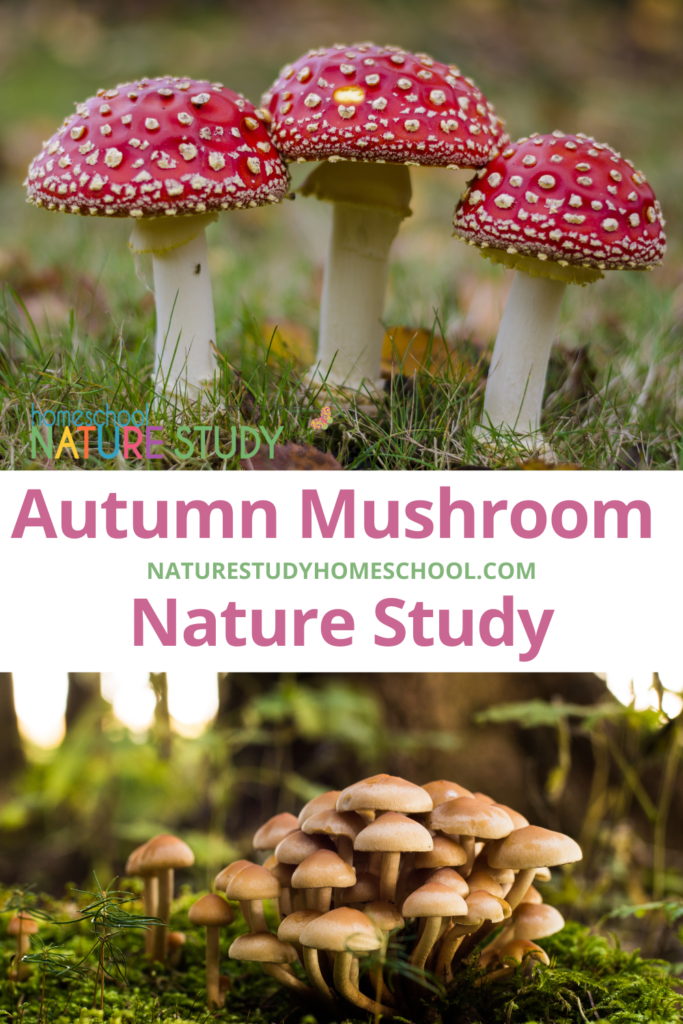
Did you know, mushrooms are grown in all 50 states? The majority of commercial mushroom growers are located in Pennsylvania. 63% of all white mushrooms are grown in Pennsylvania. Mushrooms require less water than other crops which makes them “energy efficient”.
Tip for Finding Mushrooms
My original mushroom challenge suggested that you let your friends and family know that you are looking for mushrooms and they can let you know if they come across any in their travels. Some of our best mushroom studies came from tips I got from my dad who found several interesting species of mushrooms on his property.
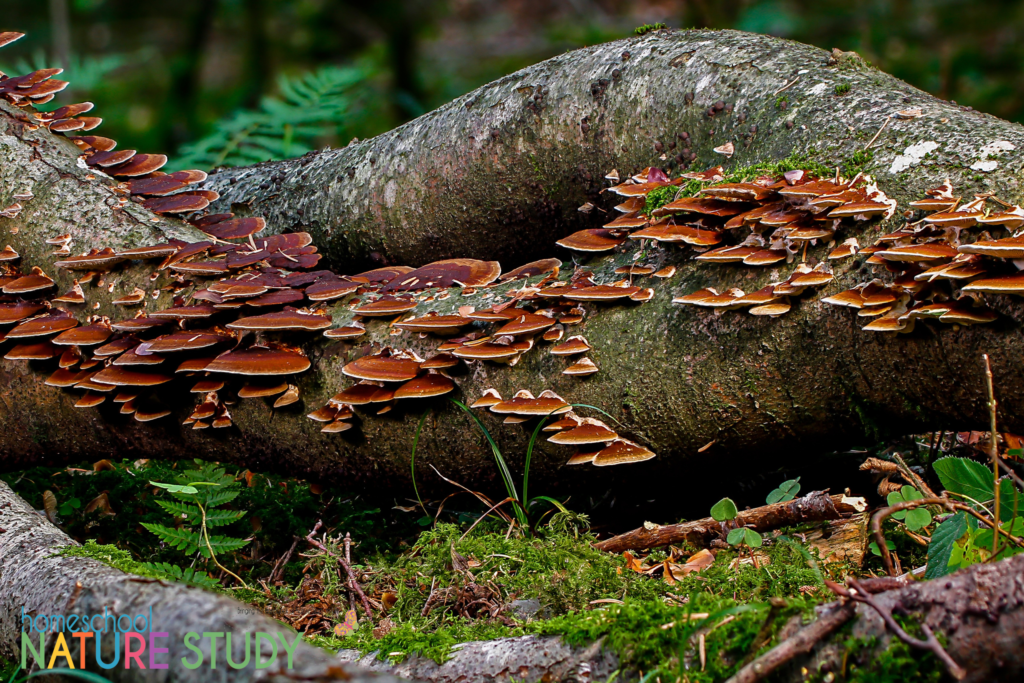
Autumn Mushroom Nature Study – Handbook of Nature Study Lesson 198, pages 714-719
Archive Outdoor Hour Challenge – Click the link above to see the mushroom study suggestions in the original challenge.
“Fungi, as a whole, are a great boon to the world. Without them our forests would be choked out with dead wood. Decay is simply the process by which fungi and other organisms break down dead material, so that the major part of it returns to the air in gaseous form, and the remainder, now mostly humus, mingles with the soil.” Handbook of Nature Study, page 715
More Facts About Mushrooms
Mushrooms are a good source of Vitamin E as well as protein.
Most children recognize the red cap mushroom with white spots in Super Mario, the Fly agaric. However this mushroom is not safe to eat. It is highly toxic.
Cook with Mushrooms
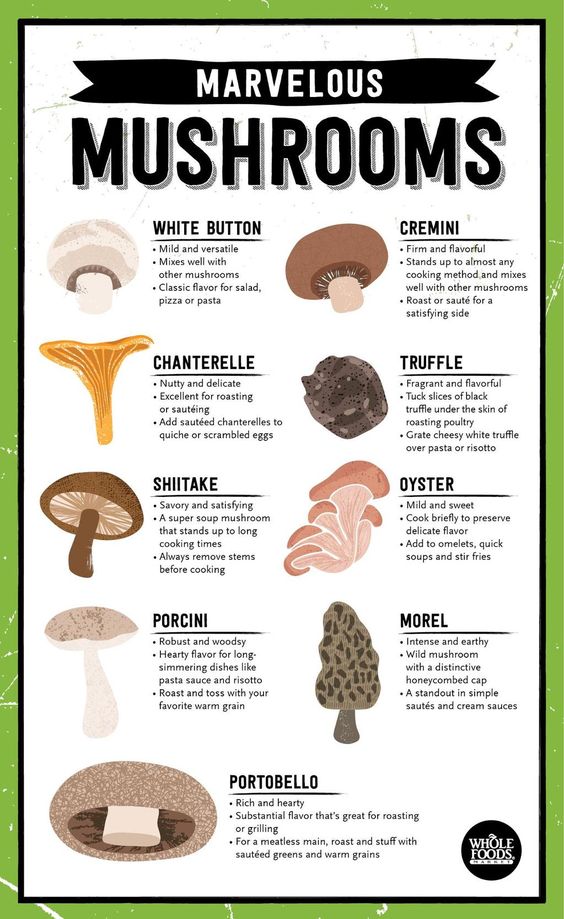
Bring the Autumn Mushroom Nature Study into your kitchen for a fun night of cooking! Try out different mushrooms from your farmer’s market or local grocery store. Mushrooms are great in spaghetti sauce, soups, scrambled eggs, and stir fry. Try adding them on hamburgers and pizza! This Whole Foods graphic is helpful if you’re not familiar with cooking mushrooms.
Watercolor Mushrooms
“Since mushrooms are especially good subjects for watercolor and pencil studies, it would add much to the interest of the work if each pupil, or the school as a whole, should make a portfolio of sketches of all the species found. With each drawing there should be made on a supplementary sheet a spore print of the species.”
Handbook of Nature Study, page 718
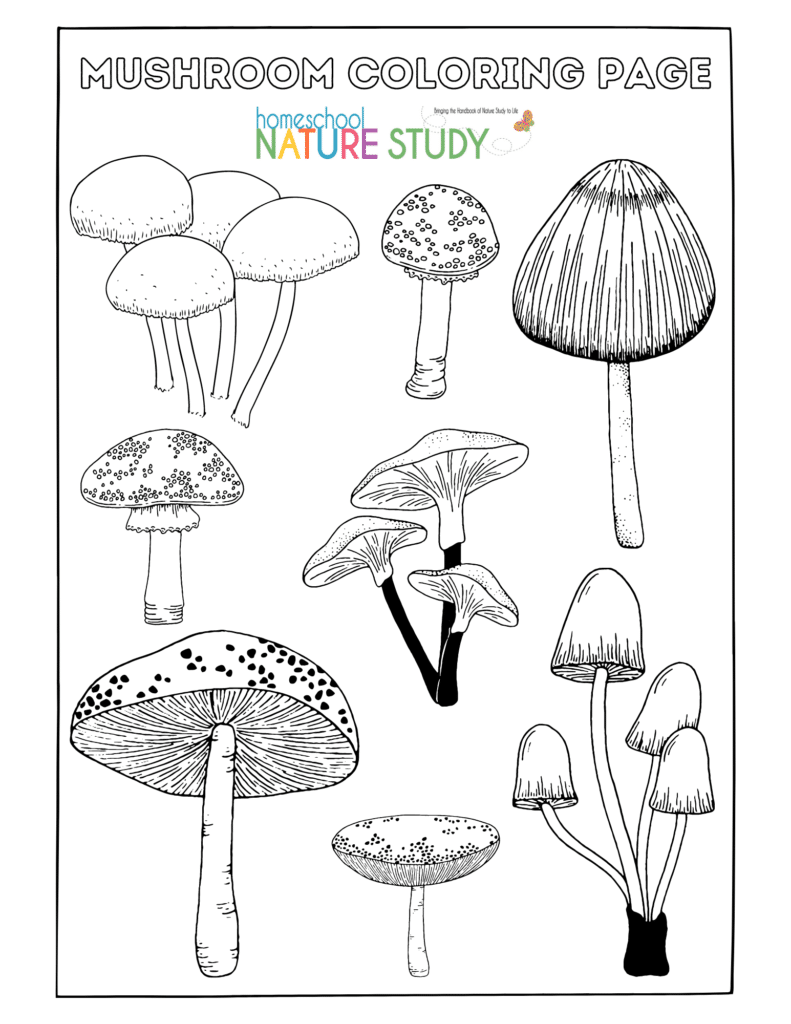
Homeschool Nature Study Members can print the Mushroom Coloring Page from their dashboard.
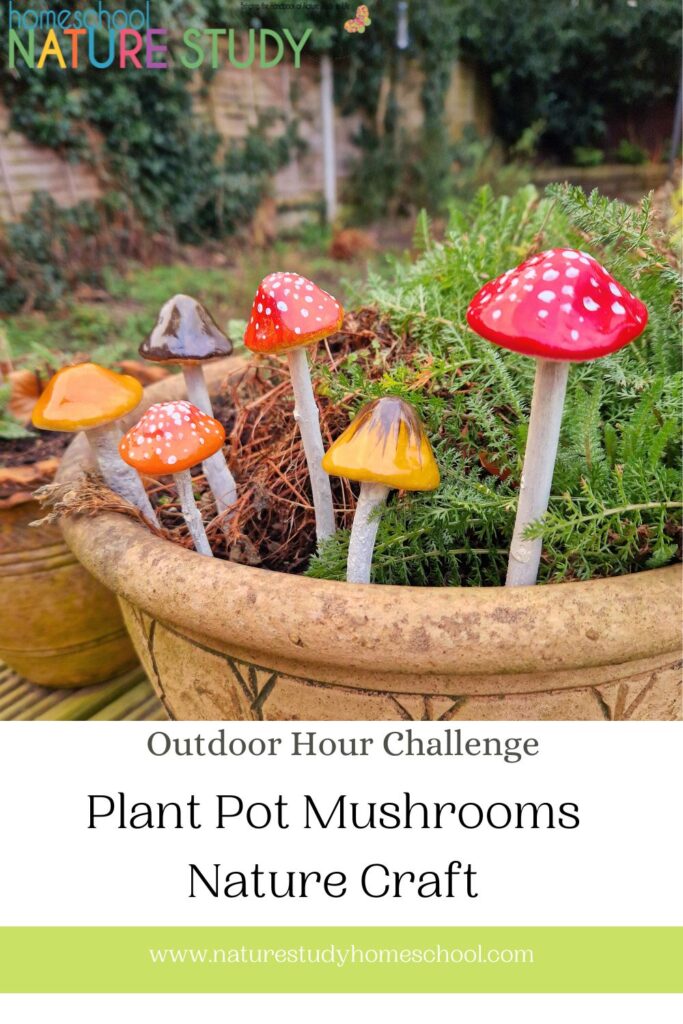
Mushroom Nature Craft
Victoria shares, “It is time to brighten up our spirits as well as our gardens with these brightly coloured plant pot mushrooms. With only a handful of supplies you can create something to beautify either your outside or inside plant pots. So get outside, hunt down the perfect twigs and lets get crafting.”
-First published by Barb September 2020. Updated September 2024 by Stef.


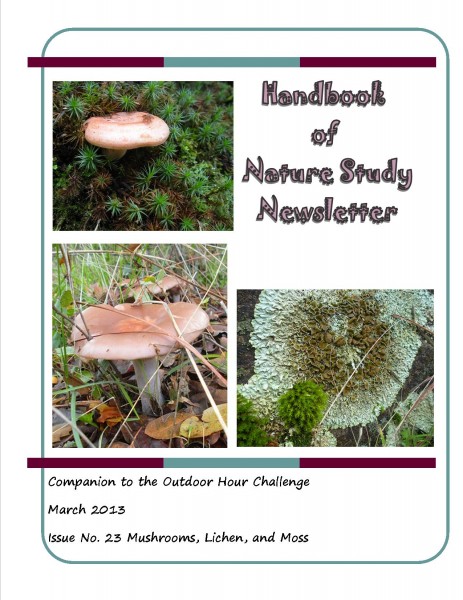 If you have access to the Winter Nature Study Continues ebook, there are two notebook pages to choose from for your nature journal.
If you have access to the Winter Nature Study Continues ebook, there are two notebook pages to choose from for your nature journal.
